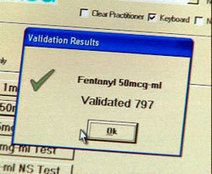For $49, a doctor will see you now — online
14/10/2013Body Computing Conference 2013: BioGram App combines vitals with Instagram
14/10/2013Big data reaps big rewards in drug safety
Using the Food and Drug Administration’s Adverse Event Reporting System (FAERS), a hospital electronic health records database, and an animal model, a team of researchers at the Icahn School of Medicine at Mount Sinai report that by adding a second drug to the diabetes drug rosiglitazone, adverse events dropped enormously. That suggests that drugs could be repurposed to improve drug safety, including lowering the risk of heart attacks.
The research is published online Oct. 9 in the journal Science Translational Medicine.
The approach is part of an emerging strategy known as systems pharmacology that integrates computer science, mathematical models, and animal models to examine how drugs work in cells.
Systems pharmacology shows that most drugs act by binding to targets that are part of complex networks within cells.
« Big data systems have a wealth of data, and when studied appropriately, can point to potentially safer combinations, » said the study’s lead author, Ravi Iyengar PhD, Dorothy H. and Lewis Rosenstiel Professor, Department of Pharmacology and Systems Therapeutics, and Director, Systems Biology Center, at the Icahn School of Medicine at Mount Sinai. « As an end in themselves, big data analyses must be considered preliminary, but findings can point to potentially safer combinations that can subsequently be tested in clinical trial, » said Dr. Iyengar. « We may be able to use FDA-approved drugs to prevent adverse events. »
In this study, investigators studied how drug combinations act through networks within cells, focusing on the diabetes drug rosiglitazone, an effective drug in controlling blood glucose. However, rosiglitazone has a serious side effect, increased heart attacks, which has restricted its use markedly.
See on www.sciencedaily.com




